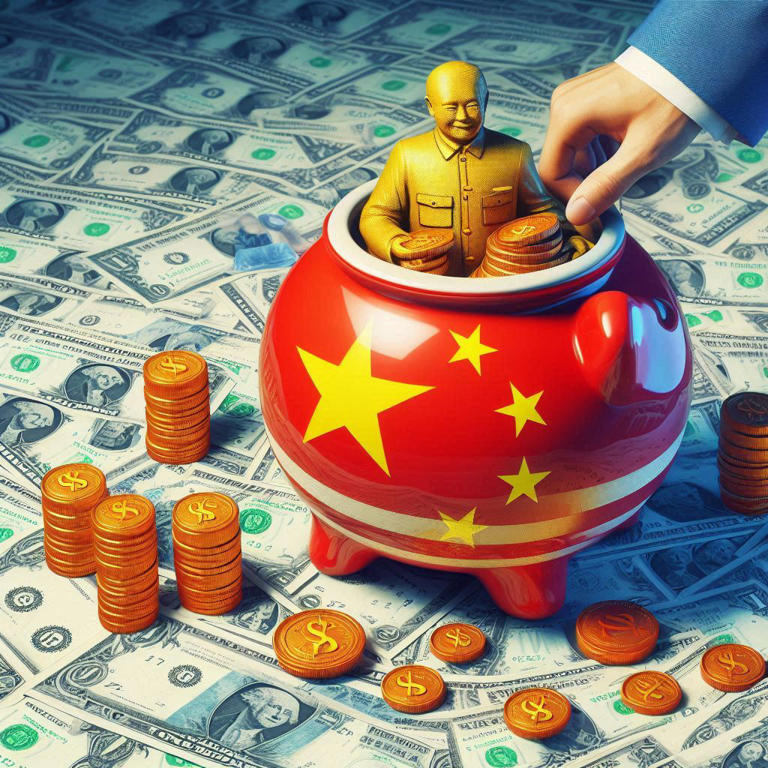China’s decision to cut ties with a record number of US treasuries and agency debt bonds, totaling $53.3 billion, is a bold move that underscores the escalating tensions between the world’s two largest economies. This significant sell-off represents the latest escalation in a long-standing economic rivalry characterized by trade disputes, geopolitical tensions, and diplomatic confrontations.
Background of Escalating Tensions:
The tensions between China and the United States have been brewing for years, fueled by a variety of factors. Economic competition, especially in critical sectors such as technology and trade, has been a primary driver. Additionally, geopolitical disputes over territorial claims, human rights issues, and ideological differences have further strained relations between the two nations. The recent decision by China to cut ties with US treasuries is a manifestation of these underlying tensions and represents a strategic maneuver aimed at asserting China’s economic independence and challenging the dominance of the US dollar in global finance.
China’s Multifaceted Motivations:
China’s decision to sell off US treasuries is motivated by a combination of economic, strategic, and political considerations:
- Diversification of Reserves: China seeks to reduce its exposure to US assets in its foreign reserves, reflecting a broader trend among BRICS countries to diversify their reserve holdings and minimize reliance on the US dollar. This diversification strategy aims to mitigate risks associated with fluctuations in the US economy and currency.
- Strategic Realignment: Geopolitically, China’s move can be interpreted as a response to the aggressive economic policies pursued by the United States, including tariffs, trade restrictions, and technology sanctions. By reducing its holdings of US treasuries, China aims to assert its economic independence and signal its readiness to counter US pressure tactics.
- Gold Reserves Building: China’s accumulation of gold reserves serves as a hedge against currency volatility and economic instability, providing a safeguard against potential risks posed by the US dollar’s dominance in global finance. This strategic shift towards gold reflects China’s long-term vision of establishing a more resilient and diversified economic framework.
Implications for the United States and the Global Economy:
China’s decision to cut ties with US treasuries carries significant implications for both the United States and the global economy:
- Reduced Confidence in US Economy: The sell-off of US treasuries by China signals a lack of confidence in the long-term stability and fiscal health of the US economy. This loss of confidence could lead to higher borrowing costs for the US government and increased volatility in financial markets.
- Higher Interest Rates: As demand for US treasuries declines, the US government may need to offer higher interest rates to attract buyers for its debt. This could result in higher borrowing costs for businesses, consumers, and the government, potentially dampening economic growth and investment.
- Geopolitical Tensions: The sell-off of US treasuries exacerbates existing geopolitical tensions between the United States and China, further straining bilateral relations and increasing the risk of escalation. The move underscores the challenges of navigating a complex and increasingly volatile geopolitical landscape.
- Impact on Global Financial Markets: The sell-off of US treasuries by China could have ripple effects across global financial markets, influencing investor sentiment, exchange rates, and bond yields. The move highlights the interconnectedness of the global economy and the potential for economic decisions by major players to reverberate globally.
Conclusion:
China’s decision to cut ties with US treasuries represents a significant escalation in the ongoing economic rivalry between the United States and China. Motivated by a desire to assert economic independence, diversify reserves, and challenge the dominance of the US dollar, China’s move underscores the shifting dynamics of global finance and the complexities of managing geopolitical tensions in an interconnected world. As both nations navigate a rapidly evolving economic landscape, the implications of China’s sell-off of US treasuries will continue to reverberate across financial markets and geopolitical arenas, shaping the trajectory of global economic relations for years to come.
